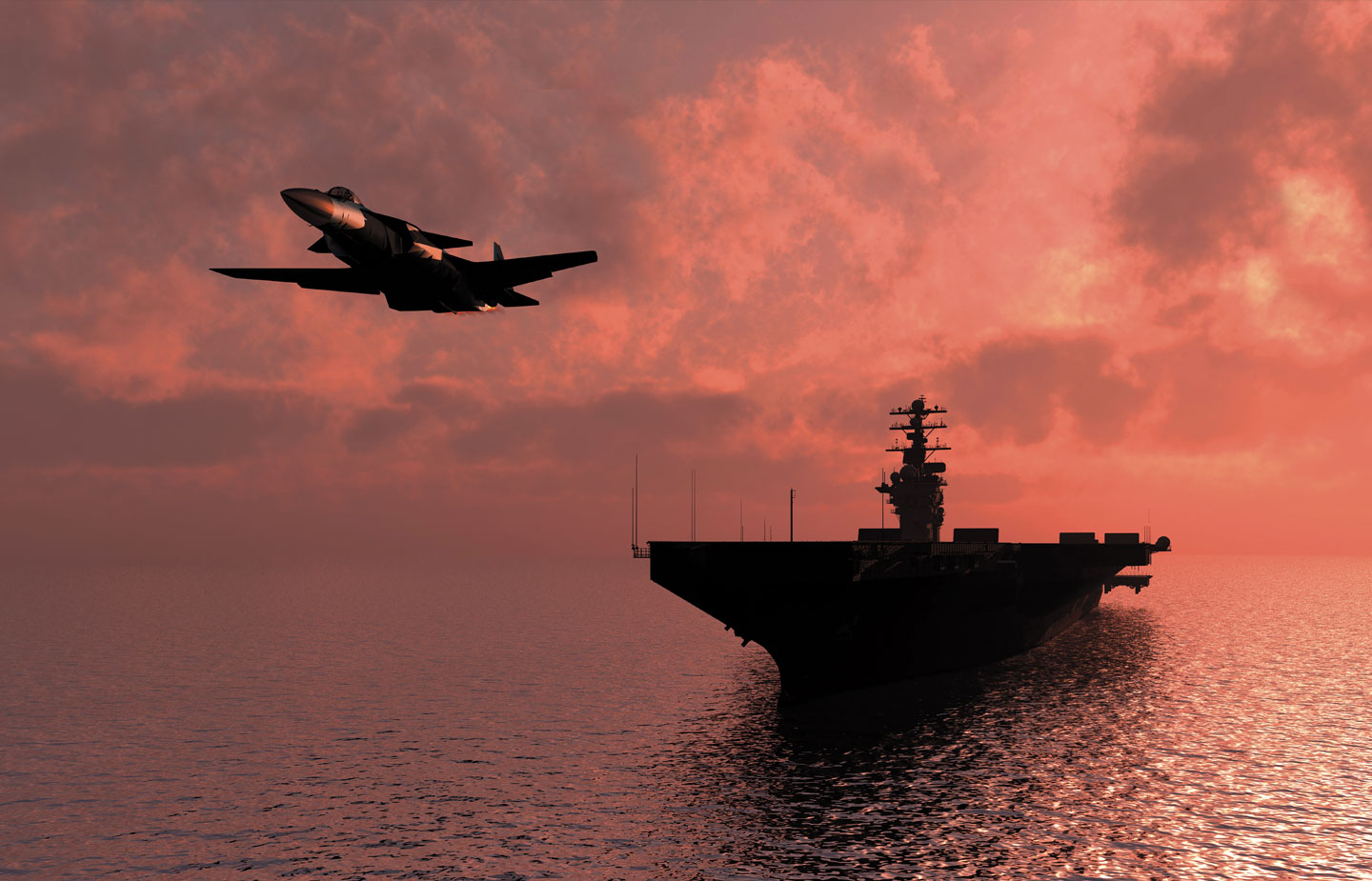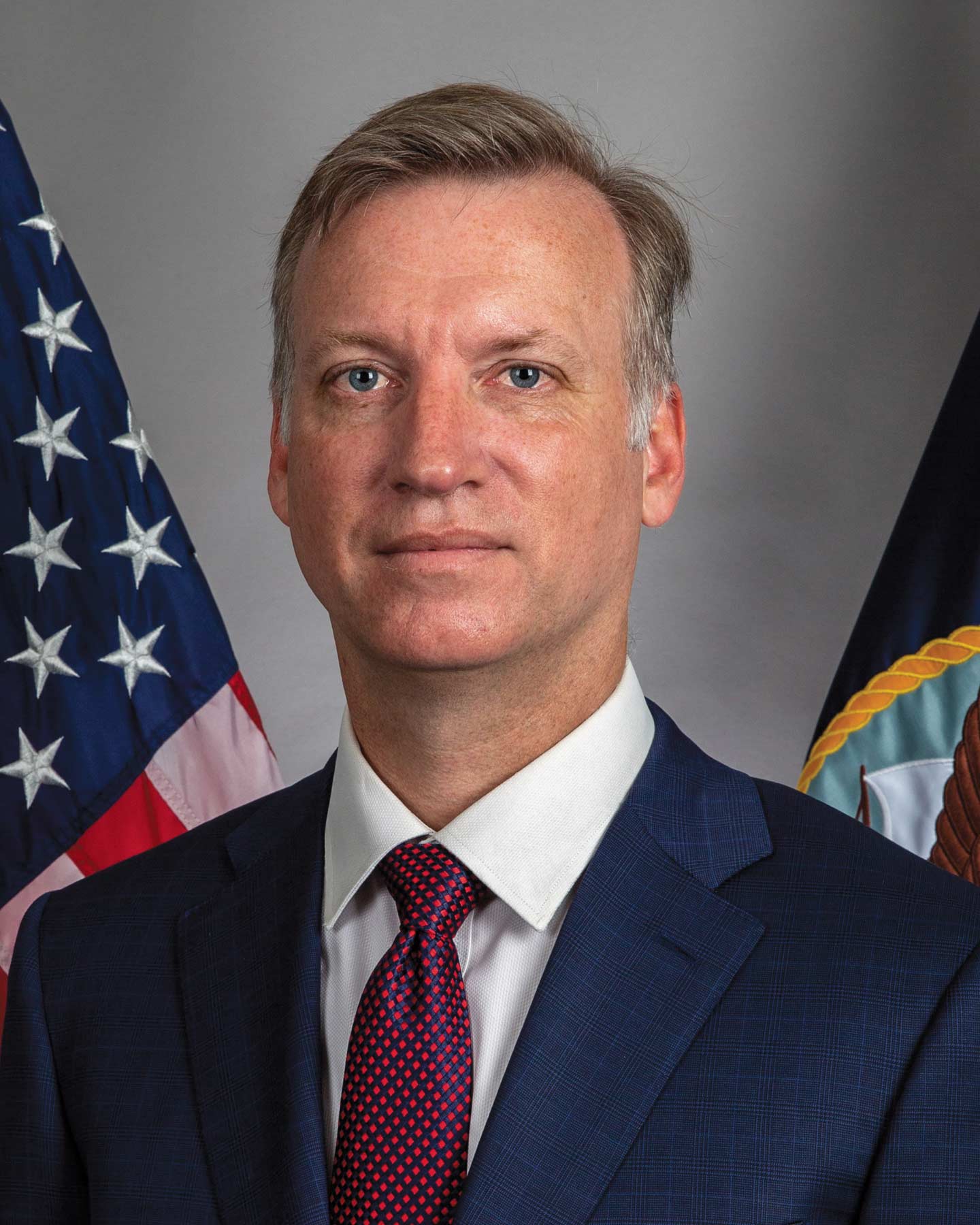Mission: Possible
Erik Raven ’96 helps the U.S. Navy address some of the most pressing issues facing today’s military.
The most famous Navy fighter pilot doesn’t really exist. But that’s just fine with Under Secretary of the Navy Erik Raven ’96.
In fact, he was thrilled when, after a 36-year hiatus, Captain Pete “Maverick” Mitchell came flying back into the hearts of millions this spring.
“We are very excited about it. The movie is a blockbuster, and people are talking about it,” Raven says of Top Gun: Maverick. “It’s a great way to start a conversation about what it means to serve one’s country.”
The film, which has grossed more than $1.4 billion worldwide, was released in theaters in May, just weeks after Raven was confirmed as under secretary by the U.S. Senate.
Raven had been serving as the majority clerk of the Senate Defense Appropriations Subcommittee, where he oversaw more than $700 billion of annual spending by the Department of Defense and the intelligence community, when President Joe Biden asked late last year if he would be interested in being nominated to serve as the second-highest ranking official in the Department of the Navy.
“I jumped at it,” Raven remembers. “One of my great interests was engaging with the Navy and Marine Corps, analyzing their budget, and interacting with senior leaders, both civilian and military. It fit so well with my prior experience and my understanding of the issues. It was really an offer I could not refuse.”
Consistent with the principles of the U.S. Constitution, the Department of the Navy is a primarily civilian organization that provides oversight of the military affairs of the United States Navy and the United States Marine Corps. As under secretary, Raven serves as the Department of Navy’s chief operating officer and chief management officer, as well as the principal adviser to Secretary of the Navy Carlos Del Toro.
Looking after the secretary’s priorities, Raven spends his days at the Pentagon working with both civilians in the department and uniformed Navy and Marine Corps leaders to address a wide range of issues, from recruitment to budgeting for weapons systems and facilities to supporting the needs of the men and women in uniform.
“I was very lucky to have had experience working with quite a few of the senior leaders, and the team really welcomed me with open arms. I’ve been very fortunate to feel like I’m just picking up those conversations and making progress on a lot of key issues,” Raven says.
“The ethos of having civilian and military teams working together to solve hard problems has been fantastic. That way of working together is exactly what I think the American people would hope to see of how their government works.”
RAVEN KNEW HE WAS interested in government and international relations, but he didn’t know exactly where that would lead him when he arrived at Connecticut College as a sophomore in the mid-1990s. After graduating from high school early, Raven had attended community college near his hometown just outside of San Francisco, and he was looking to get out of California and see more of the world. He remembers visiting Conn’s campus and being blown away by its beauty and impressed with the government and international relations programs.
In addition to his main courses of study, Raven studied Chinese (“I came into Conn looking for a challenge, and Chinese was definitely it,” he says), and worked as a stagehand and electrician for theater productions in Palmer Auditorium, an experience he describes as “really special.” But it was in the government department where he found a mentor in William “Bill” Rose, now professor emeritus of government and international relations.
Raven took several of Rose’s classes focused on national security affairs, including “Peace and War in the Post-Cold War Era” and “American Foreign Policy,” and Rose advised Raven on his senior honors thesis, “Unkind Policies: An Investigation of Government Support of the International Drug Trade.”

